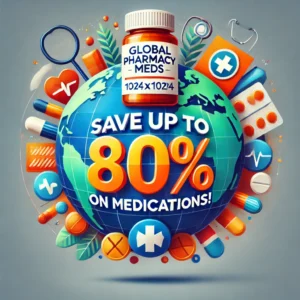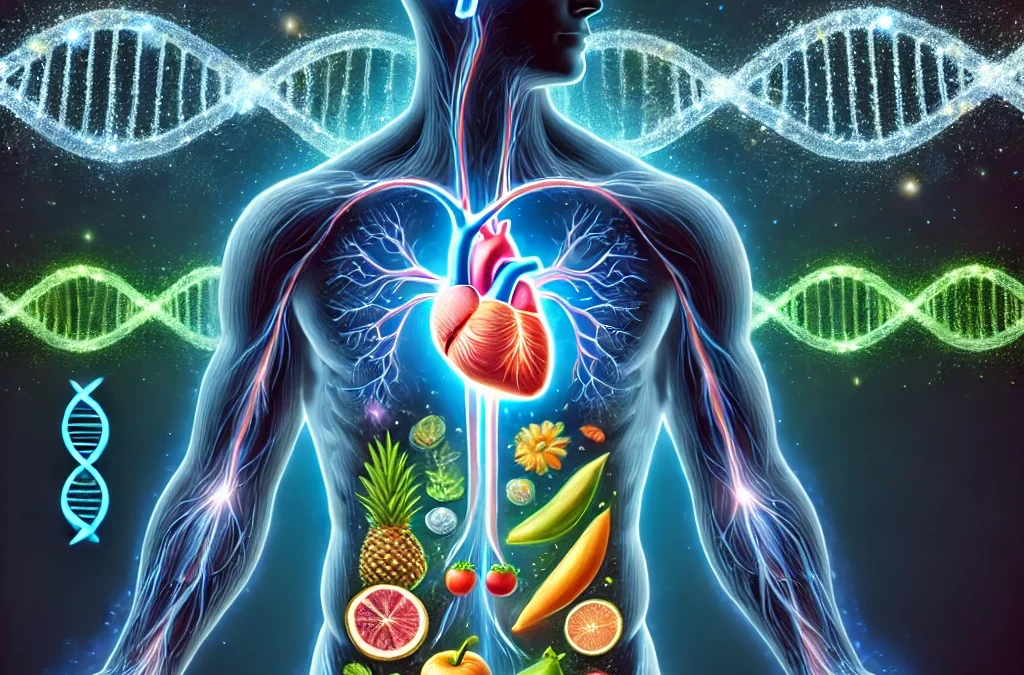Chapter 3: The Anti-Cancer Diet
Food is more than fuel—it’s information. Every bite you take sends chemical signals to your cells, influencing how your body functions, heals, and protects itself. In the context of cancer, this is incredibly important. The foods you eat every day can either increase your risk of developing cancer or strengthen your body’s natural defenses against it.
An anti-cancer diet is not a restrictive fad—it’s a long-term, nutrient-rich approach to eating that focuses on whole, plant-based foods, anti-inflammatory ingredients, and the strategic avoidance of dietary carcinogens. This chapter explores the science behind these foods and how to make them part of your everyday life.
The Power of Plants: Fruits, Vegetables, and Fiber
One of the most consistent findings in cancer prevention research is this: a diet rich in plant-based foods lowers cancer risk.
Plants are loaded with fiber, vitamins, minerals, and phytochemicals—compounds that help detoxify the body, reduce inflammation, and inhibit the growth of cancer cells. These include:
-
Cruciferous vegetables (broccoli, cauliflower, Brussels sprouts, kale): Contain sulforaphane, a compound that boosts detoxification enzymes and may inhibit cancer cell growth.
-
Berries (blueberries, raspberries, blackberries): High in anthocyanins and ellagic acid, both known for their antioxidant and anti-cancer effects.
-
Leafy greens (spinach, arugula, Swiss chard): Packed with folate, fiber, and chlorophyll, which support DNA repair and detoxification.
-
Allium vegetables (garlic, onions, leeks): Rich in organosulfur compounds that may suppress tumor formation and stimulate the immune system.
Why Fiber Matters
Fiber isn’t just good for digestion—it plays a critical role in cancer prevention:
-
It feeds the gut microbiome, which is linked to reduced inflammation and improved immune function.
-
It helps bind and eliminate carcinogens through the digestive tract.
-
It improves hormone balance, especially important in estrogen-related cancers like breast and endometrial cancer.
Aim for at least 30 grams of fiber daily, focusing on beans, lentils, whole grains, vegetables, and fruit.
Sugar, Processed Meat, Alcohol: What to Avoid
While certain foods help prevent cancer, others actively promote the biological processes that fuel it—like chronic inflammation, insulin resistance, and DNA damage. To truly benefit from an anti-cancer diet, you must reduce or eliminate these dietary risks:
1. Added Sugars and Refined Carbohydrates
-
Excess sugar leads to elevated insulin and IGF-1, hormones that promote cancer cell growth.
-
Sugar feeds harmful bacteria and yeast in the gut, disrupting the microbiome.
-
Avoid sweetened beverages, white bread, pastries, and ultra-processed snacks.
2. Processed Meats and Red Meat
-
Processed meats (bacon, sausage, deli meat) are classified by the WHO as Group 1 carcinogens—known to cause cancer.
-
Red meat, especially when grilled or charred, produces heterocyclic amines (HCAs) and polycyclic aromatic hydrocarbons (PAHs), both linked to cancer.
-
Limit intake to no more than 12–18 ounces of cooked red meat per week, and avoid processed meats altogether when possible.
3. Alcohol
-
Alcohol is a known carcinogen, linked to breast, liver, colorectal, and esophageal cancers.
-
It interferes with DNA repair and increases levels of estrogen.
-
If consumed at all, limit to one drink per day for women, two for men—but zero is best from a cancer prevention standpoint.
The Role of Antioxidants, Phytochemicals, and Polyphenols
Plants are rich in natural bioactive compounds that act like microscopic bodyguards. These include:
1. Antioxidants
-
Neutralize free radicals—unstable molecules that cause DNA damage and cell mutation.
-
Found in colorful fruits and vegetables like carrots (beta-carotene), oranges (vitamin C), and spinach (vitamin E).
2. Phytochemicals
-
Naturally occurring plant chemicals that help prevent cancer by modulating detox enzymes, reducing inflammation, and inhibiting tumor growth.
-
Examples: Glucosinolates in cruciferous vegetables, lignans in flaxseeds, isoflavones in soy.
3. Polyphenols
-
A specific group of phytochemicals with powerful antioxidant and anti-inflammatory properties.
-
Found in:
-
Green tea (epigallocatechin gallate / EGCG)
-
Turmeric (curcumin)
-
Berries (resveratrol, quercetin)
-
Dark chocolate and red grapes
-
These compounds don’t act like drugs—they support your body’s internal defense systems, making your tissues more resistant to cancerous changes.
Superfoods with Cancer-Preventive Properties
While there’s no magic food that prevents cancer on its own, certain foods are particularly potent additions to a prevention-focused diet:
-
Broccoli sprouts – Contain 100x more sulforaphane than mature broccoli.
-
Garlic – Boosts immunity and may suppress tumor growth.
-
Turmeric – Anti-inflammatory powerhouse; best absorbed with black pepper.
-
Green tea – High in polyphenols, especially EGCG.
-
Flaxseeds – Rich in fiber, omega-3s, and hormone-balancing lignans.
-
Mushrooms (shiitake, maitake, reishi) – Enhance immune activity.
-
Tomatoes – Contain lycopene, which may protect against prostate cancer.
-
Walnuts – Provide omega-3s and polyphenols.
-
Blueberries – Antioxidant-rich and support healthy brain and cell function.
Make these part of your daily meals and snacks to boost your body’s cancer-fighting capacity.
Sample Anti-Cancer Meal Plans and Recipes
Eating to prevent cancer doesn’t mean sacrificing flavor. In fact, it’s the opposite—the colors, flavors, and textures of plant-based foods create vibrant, enjoyable meals that nourish your body on every level.
Sample Daily Meal Plan
Breakfast:
-
Green smoothie with spinach, frozen berries, flaxseed, turmeric, and almond milk
-
Oatmeal with chia seeds, cinnamon, and sliced banana
Lunch:
-
Large mixed green salad with kale, arugula, tomatoes, avocado, and chickpeas
-
Olive oil-lemon dressing with garlic and mustard
-
Side of steamed broccoli or cauliflower
Snack:
-
Green tea with a handful of walnuts and dried goji berries
Dinner:
-
Stir-fried tofu with bok choy, mushrooms, and ginger-garlic sauce
-
Brown rice or quinoa
-
Side of roasted sweet potatoes
Dessert:
-
Dark chocolate square with herbal tea
Anti-Cancer Recipe: Broccoli-Turmeric Soup
Ingredients:
-
1 head broccoli, chopped
-
1 onion, diced
-
2 cloves garlic, minced
-
1 tsp turmeric
-
1 tsp ginger
-
3 cups low-sodium vegetable broth
-
1 tbsp olive oil
-
Salt and pepper to taste
Instructions:
-
In a pot, sauté onion and garlic in olive oil until soft.
-
Add turmeric, ginger, and broccoli. Stir to coat.
-
Add vegetable broth, bring to a boil, then simmer 15 minutes.
-
Blend until smooth. Add salt and pepper to taste.
-
Garnish with pumpkin seeds or a dollop of coconut yogurt.
In Summary
An anti-cancer diet is not about deprivation—it’s about making empowered, informed choices that fuel your body with the nutrients it needs to defend itself. By centering your meals around whole, plant-based foods and reducing or eliminating known dietary carcinogens, you’re actively changing your biology in ways that protect against cancer.
Food is one of the most powerful tools in your prevention arsenal, and you get to use it multiple times a day. With each bite, you have the opportunity to build resilience, enhance detoxification, and strengthen your immune system. The next chapter explores another vital part of prevention—how movement can become your daily medicine.
Save Up to 80% on Your Prescription Drugs
 Looking to save big on your prescriptions? GlobalPharmacyMeds.to helps you access high-quality medications at unbeatable prices—save up to 80% by filling your prescriptions through our trusted international pharmacies!
Looking to save big on your prescriptions? GlobalPharmacyMeds.to helps you access high-quality medications at unbeatable prices—save up to 80% by filling your prescriptions through our trusted international pharmacies!
Get the same FDA-approved medications at a fraction of the cost while ensuring safety, reliability, and convenience. Why overpay when you can get affordable, authentic prescriptions delivered to your door?
Take control of your healthcare costs today with GlobalPharmacyMeds.to!


